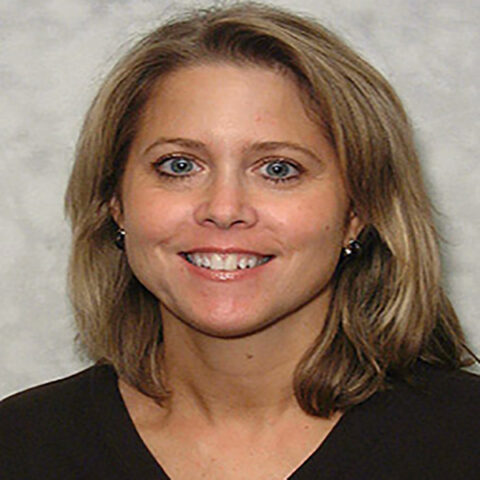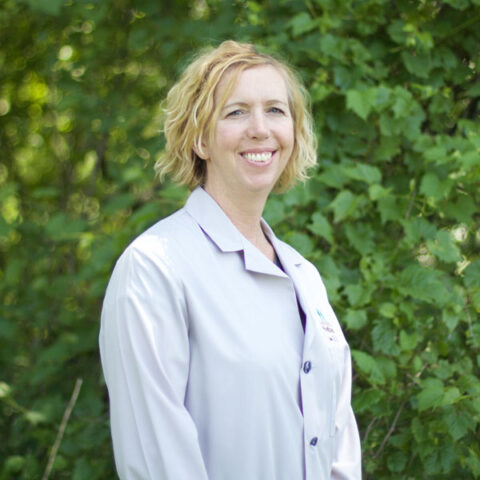Pediatric Newborn & Infant Care
Our personalized birthing experience features the care and attention of world-class physicians and nurses in a soothing, calm environment designed especially for the comfort of you and your baby.

At the NCH Women and Infants Unit, you can expect the following services.
Change-of-Shift Reports at Your Bedside
- Our nurses will meet with you when our staff changes shifts.
- We will introduce the incoming nurse and review your treatment plan.
- We will answer any questions that you have.
A Gentle Transition for Your New Baby
We wait to bathe your baby for 6–8 hours to help stabilize their temperature, prevent infection and improve mother-baby bonding.
- Immersion-swaddled bathing is done in your room to reduce stress for both you and your baby.
- Breastfeeding support is available to you during and after your stay.
- We offer the Joeyband®, which cradles your baby to you for hands-free, skin-to-skin contact.
- Quiet hours are in place for you and your baby to have alone time with few interruptions from staff.
Postpartum Road Map
We have a comprehensive plan guiding you and your baby from admission through discharge.
POST-BIRTH Warning Signs
Most women who give birth recover without problems. But any woman can have complications after the birth of a baby. Learning to recognize these POST-BIRTH warning signs and knowing what to do can save your life.
Call 911 if you have:
- Pain in chest
- Obstructed breathing or shortness of breath
- Seizures
- Thoughts of hurting yourself or your baby
Call your healthcare provider if you have:
- Bleeding, soaking through one pad per hour, or blood clots the size of an egg or bigger
- Incision that is not healing
- Red or swollen leg that is painful or warm to touch
- Temperature of 100.4 or higher
- Headache that does not get better, even after taking medicine, or bad headache with vision changes
(If you can’t reach your healthcare provider, call 911 or go to an emergency room.)
Every member of our team is dedicated to making your experience of childbirth safe, comfortable and family friendly. If at any time you have questions or concerns during your stay, please dial ext. 8500 and ask for the Clinical Unit Leader.
Newborn Screening Guide
Why Does My Baby Need Newborn Screening?
Most babies born in the United States are healthy, but there are some babies who may seem fine at birth but have a serious unseen disorder. If detected early, some of the problems, such as illness, mental conditions, poor growth, or even death can be prevented.
How Will You Test My Baby?
After your baby is at least 24 hours old, a nurse will collect a small sample of blood from your baby’s heel. If your baby goes home from the hospital sooner than 24 hours of age, or is born at home, you should make an appointment with your child’s doctor to make sure the test is done at the proper time, as this screening is most accurate soon after your baby is born.
What Disorders Are Included With Newborn Screening?
The Illinois newborn screening panel currently includes specific endocrine and metabolic disorders, as well as certain blood disorders. The disorders included in the panel are:
- Biotinidase deficiency
- Congenital adrenal hyperplasia
- Galactosemia
- Hypothyroidism
- Phenylketonuria
- Lysosomal storage disorders
- Sickle cell disease
- Amino acid/urea cycle disorders
- Fatty acid oxidation disorders
- Organic acid disorders
- Cystic fibrosis
- Severe combined immune deficiency
Where Do I Get My Baby’s Screening Results?
Results of the screening are sent to the hospital or clinic where the sample was collected. Ask your doctor any questions you may have concerning the results or the newborn screening process.
What If My Baby Needs a Retest?
If your child’s initial screening was unclear or abnormal, the newborn screening may need to be repeated. If necessary, it is important to make sure that this test is repeated as soon as possible. Your baby’s doctor will talk with you about what steps need to be taken.
Developmental Milestones
As your baby grows, be sure to monitor signs of typical development. Keep a notebook of your observations and share your concerns with your child’s healthcare provider.
Your baby should reach the following milestones
Typical Speech Development*
3 Months
- Sucks and swallows well during feeding
- Quiets or smiles in response to sound or voice
- Coos or vocalizes other than crying
- Turns head toward direction of sound
6 Months
- Begins to use consonant sounds in babbling, e.g., “dada”
- Uses babbling to get attention
- Begins to eat cereals and pureed foods
Typical Play Development*
3 Months
While lying on his back:
- Visually tracks a moving toy from side to side
- Attempts to reach for a rattle held above his chest
- Keeps head in the middle to watch faces or toys
6 Months
- Reaches for a nearby toy while on his tummy
While lying on his back:
- Transfers a toy from one hand to the other
- Reaches both hands to play with feet
Typical Physical Development*
3 Months
While lying on his tummy:
- Pushes up on arms
- Lifts and holds head up
6 Months
- Uses hands to support self in sitting
- Rolls from back to tummy
- While standing with support, accepts entire weight with legs
*Remember to correct your child’s age for prematurity.
Pediatric Newborn & Infant Care Physicians
Pediatric Newborn & Infant Care Treatment Locations

800 W. Central Road
Arlington Heights, IL 60005
847-618-1000
X.X mi




